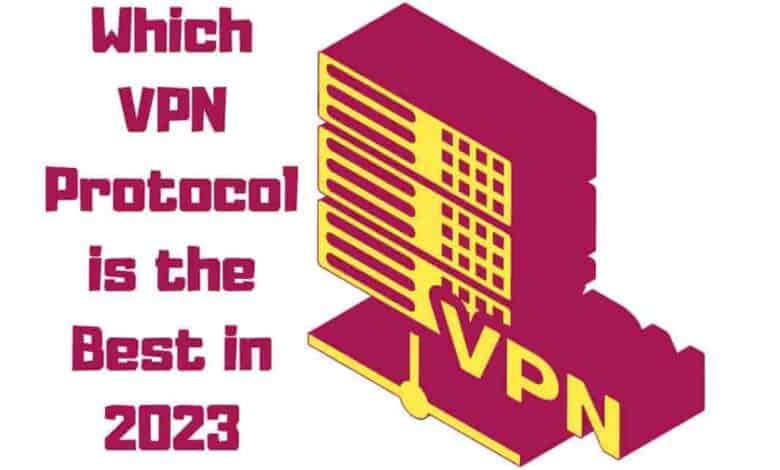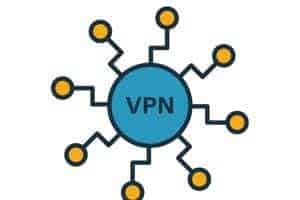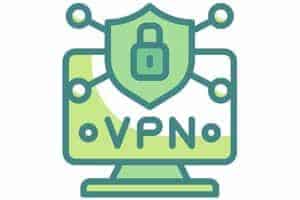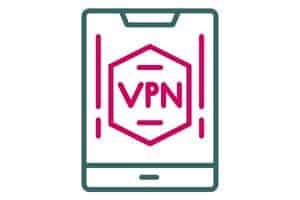Which VPN Protocol is the Best in 2023

Are you seeking the best VPN protocol to protect your data and secure online traffic? Knowing which is right for you can take time and effort with many options. But don’t worry – understanding and selecting the optimal VPN protocol can be easy.
In this article, we’ll explore the different VPN protocols available, discuss their benefits and drawbacks, and help you find which vpn protocol is the best.
Every protocol has advantages and disadvantages that must be carefully weighed before deciding. Let’s look at today’s most popular protocols to simplify this process.
We’ll cover OpenVPN, PPTP (Point-to-Point Tunneling Protocol), L2TP/IPSec (Layer 2 Tunneling Protocol / Internet Protocol Security), SSTP, IKEv2 (Internet Key Exchange version 2), WireGuard®️and more!
Whether you’re new to using VPNs or are just looking for an upgrade from your current VPN provider, this guide will provide all the information needed to select the ideal protocol for maximum security and privacy protection. Knowing what each option offers will ensure you get exactly what you need from a top-notch VPN service. Let’s dive in!
What Is A Vpn Protocol?

Imagining a secure gateway between two networks, with an encryption code that acts as a lock and key, we can begin to visualize how a Virtual Private Network (VPN) works. VPN protocols are established lines of code allowing data transmission over public computer networks to connect mobile devices or computers from different locations securely.
Using these secure socket communication layers, each device is granted access only after authentication using encryption such as TLS/SSL.
This ensures the safety and privacy of any information sent via this virtual tunnel from one endpoint to another. With hundreds, if not thousands, of lines of code involved in setting up a secure VPN protocol connection, it’s essential to understand which type best suits your needs.
Which VPN Protocol is the best
When it comes to understanding VPN protocols, there are many options available. There are three main VPN types:

- PPTP (Point-to-Point Tunnelling Protocol),
- L2TP/IPSec (Layer 2 Tunnelling Protocol/Internet Protocol Security),
- And OpenVPN. Each has its advantages and disadvantages. Here’s a quick breakdown of the different types of VPNs:
- PPTP is one of the most popular and fast VPN protocols. It is relatively easy to set up but does not provide as secure a connection as other protocols due to some security issues with the protocol itself.
- L2TP/IPSec – This protocol combines two protocols for better encryption algorithms, providing more reliable security than PPTP. However, this type of setup can be pretty complex and challenging to configure correctly if you’re unfamiliar with networking concepts.
- OpenVPN – OpenVPN provides excellent protection from eavesdropping or man-in-the-middle attacks with robust encryption algorithms that ensure data integrity and privacy during transmission over public networks such as the internet. While it may take extra time to set up correctly, once in place, it will connect you no matter where you are located geographically.
Overall, each type of VPN offers unique features depending on your needs. Understanding which best suits your requirements is critical when deciding which protocol to use for optimal performance and security.
Ikev2
If you’re looking for the ultimate advanced VPN protocol, look no further than IKEv2. This secure protocol is like the king of all encryption measures – it offers 256-bit AES encryption, perfect forward secrecy to keep your data safe, and an easy setup process that anyone with a pulse could understand.
It’s also speedy and versatile, making it ideal for residential users who want top-notch security and companies that must protect their employees’ online activities.
In short, if you want a reliable connection with strong encryption that won’t slow down your speed, then you can’t go wrong with IKEv2. With its robust features and high-performance potential, it’s no wonder why this VPN protocol is one of the most popular today.
Openvpn
OpenVPN is an open-source VPN protocol that provides a secure and efficient way to transmit data packets over networks. It was created as a joint project between James Yonan, John Gilmore, and several other developers in 2002.
OpenVPN uses robust authentication mechanisms such as digital signatures to verify peers, making it extremely difficult for hackers to gain access.
Here are some key benefits of using OpenVPN:
- Inherent security – OpenVPN’s encryption protocols offer unparalleled protection against cyberattacks and surveillance.
- Easy setup – Setup can be completed quickly with minimal effort as multiple guides are available online.
- High performance – The protocol offers high speeds without compromising stability or reliability.
OpenVPN is considered one of the most reliable protocols due to its robust feature set and level of customization options available.
Additionally, its worldwide acceptance makes it ideal for users who need connections across multiple locations and countries. With features such as port forwarding, DNS leak protection, split tunneling, and more, OpenVPN provides comprehensive security while allowing unrestricted internet access from anywhere in the world.
As such, this robust protocol has become an industry standard for securing sensitive information transmitted over public networks.
Wireguard Open-Source
WireGuard is an open-source protocol that has quickly become one of the fastest. It uses a exchange to establish secure communication over the internet. It can be used as both a tunneling protocol and for authentication purposes.
The protocol has been designed with simplicity, making it easy to configure and deploy across multiple devices. WireGuard also performs better than other VPN protocols due to its advanced cryptography.
Furthermore, it requires few system resources, making it ideal for low-powered mobile devices or embedded systems. As such, this modern solution provides excellent security while still being relatively simple to use – no wonder why it’s becoming so popular! With these benefits combined, WireGuard is worth considering if you want fast and secure connection speeds.
SSTP
The next protocol we’ll discuss is Secure Socket Tunneling Protocol (SSTP). Developed by Microsoft and released in 2008, this VPN protocol was created to provide a connection that could traverse through firewalls.
SSTP uses SSL/TLS encryption standards and HTTPS for authentication, so it’s considered highly safe. When Edward Snowden revealed documents about NSA surveillance programs in 2013, some showed that even the NSA had difficulty cracking connections using SSTP.
Regarding performance, SSTP provides excellent connection speeds and reliability on wired and wireless networks. On top of that, its strong security makes it an ideal choice for individuals looking for military-grade protection from prying eyes online.
The only downside is that Windows machines are the only ones compatible with SSTP; other operating systems don’t support it yet – though some third-party open-source projects allow you to use SSTP on non-Windows platforms.
Despite these security vulnerabilities, however, if your primary concern is speed and privacy, SSTP may be worth considering over other protocols. With all things considered, let’s continue discussing Point-to-Point Tunneling Protocol (PPTP).
PPTP
PPTP is one of the most popular and widely used VPN protocols. It is easy to set up, fast, and stable – making it an excellent option for users who need a direct connection with their chosen operating systems.
Regarding speed, PPTP has been said to be among the fastest VPN protocols available on the market today. Additionally, this protocol is compatible with many operating systems, including Windows 10, iOS, macOS, and more.
Furthermore, PPTP offers additional security measures like encryption, which can help protect your data while browsing online. While other VPN protocols provide higher levels of security than PPTP, such as L2TP/IPSec or OpenVPN, they may sometimes provide different speeds than PPTP.
Therefore, if you’re looking for a balance between speed and security when choosing a VPN protocol, PPTP may be just what you need!
L2TP/IPSec
L2TP/IPSec is a popular VPN protocol among enterprise users who need strong security for their private networks. It provides two levels of encryption to create a secure connection, making it one of the most reliable protocols. Here’s what it looks like:
- AES (Advanced Encryption Standard) encrypts data at the IP layer.
- ESP (Encapsulating Security Payload) encrypts data at the transport layer.
- L2TP authenticates users through passwords or certificates.
- IPSec uses digital signatures to authenticate each network packet sent over the VPN connection.
The combination of these two technologies makes L2TP/IPSec ideal for businesses that require robust protection from cyber threats while maintaining high-performance speeds on their networks.
Its layered approach also eliminates single points of vulnerability that hackers can exploit, providing an extra level of security compared to other protocols such as PPTP or SSTP.
This makes it an attractive option for companies seeking maximum levels of protection without compromising speed or usability. With its unique features, you can trust that your data will remain safe and secure when using L2TP/IPSec for your business communications needs. All this information about L2TP/IPSec may leave readers wondering what proprietary VPN protocols are.
What Are Proprietary Vpn Protocols?
Proprietary VPN protocols are unique and custom-made solutions that organizations create for their use. They provide a higher level of security than the more familiar public protocols because they can be tailored to meet specific needs.

In addition, their code is not publicly available, making them harder to hack or exploit. Organizations may choose proprietary protocols as their protocol of choice because of these advantages.
There are also popular OpenVPN protocols like OpenSSH and OpenSSL, which offer similar levels of encryption but do not require custom development. Some companies prefer using default protocols instead of creating their own for cost savings and simplicity.
However, an organization’s needs cannot be met with any existing protocol. In that case, it will likely have to develop its customized solution – either internally or by contracting out a third-party service provider specializing in this type of work. Such an approach comes with additional costs but provides greater flexibility and control over one’s online security system.
Knowing how each type of VPN protocol works is essential when deciding on the best option for a given need. Different types come with other benefits and drawbacks depending on usage requirements, so it’s vital to understand the strengths and weaknesses of each before committing to using one.
How Do Vpn Protocols Work?
VPN protocols establish connections between two points on a network. They use transmission protocols to create an encrypted data tunnel through the VPN server, enabling users to connect securely to remote networks and websites. Depending on the level of security needed, several different types of VPN protocols are available.
Security experts typically recommend using a protocol such as OpenVPN or IPSec to ensure maximum protection from malicious actors. These protocols offer high levels of encryption and can be used across multiple devices for added convenience.
However, it is essential to research each protocol type before deciding which one is best suited for your needs. Some may need to provide more protection depending on the specific situation.
Which iPhone/Android VPN Protocol Should I Use?
When choosing a VPN protocol for Android or iPhone, it’s essential to understand the cryptographic algorithms used and their respective online security strengths. Several secure tunnel protocols offer robust encryption protocols, each with benefits:

- OpenVPN is one of the longest-standing reliable protocols offering speed and security. It is compatible with most mobile operating systems, including iOS and Android.
- L2TP/IPsec provides a more robust level of privacy as it combines two layers of encryption but may be slower than OpenVPN.
- IKEv2 offers high-performance speeds while being highly secure due to its AES 256-bit encryption ciphers.
No matter which protocol you choose, ensure you know there could be some impact on your internet connection speed when connected to a VPN server. The proper protocol for your specific device type and network environment is essential to balance optimal performance and maximum protection.
How much would a VPN slow my connection?
Choosing the correct VPN protocol can be daunting, and it’s essential to understand how each one works to make an informed decision. While many people think that all VPNs slow down their connection speeds, this isn’t necessarily true—it depends on which protocol you choose.
UDP port is usually much faster than TCP ports when using a VPN. Still, other protocols may offer better security without sacrificing download speed. OpenVPN is often considered the best option for most users since it provides a good balance of safety and performance.
Additionally, some providers offer optimized servers specifically designed for streaming or gaming purposes, making them ideal for those who want to maximize their internet speeds while maintaining privacy.
Ultimately, the answer to how much a VPN will reduce your internet speed depends mainly on the type of connection protocol you’re using. All protocols have different strengths and weaknesses, so take the time to research each one before making your final choice!
What is the Simplest VPN protocol to install?
Setting up the most secure protocol for VPN users can be time-consuming and complex. But for those looking for a quick setup with minimal effort, some protocols stand out from the crowd as being easy to use. Pre-shared keys (PSK) are one of the most accessible options for VPN setup. Here’s a quick breakdown:
1. PSK offers GUI management, making setting up and configuring all devices simple.
2. It also has cross-platform compatibility, making it an ideal choice for using multiple operating systems or router models in your network architecture.
3. Finally, the pre-shared key exchange requires no additional authentication methods beyond entering a password – this saves time compared to other protocols that require extra steps like configuring certificates or generating server identity hashes.
Overall, pre-shared keys make an excellent option for any user looking for an uncomplicated way to get their system up and running quickly without sacrificing security or reliability. With these advantages in mind, let’s consider what makes pre-shared keys well-suited for cross-platform compatibility among operating systems and routers.
Which VPN Protocol Works Best Cross-Platform?
A suitable VPN protocol should be like a Swiss Army Knife, able to handle any online activity you throw at it. Regarding cross-platform compatibility, the OpenVPN connection is hands down one of the most versatile options out there. It’s open-source software that can run on almost any system and offers users various platform features.
OpenVPN also has impressive server load capabilities allowing its user base to access wifi networks with ease and security. As a bonus, this type of connection allows for higher speed connections than other protocols, making your browsing experience faster and smoother.
The only downside is that all devices or operating systems don’t support OpenVPN–it’s up to the user to ensure they have compatible hardware and software installed before they can benefit from using this particular protocol.
But you do have the proper setup. In that case, you’ll have a reliable solution for all your online activities. With its balanced combination of security and performance, OpenVPN remains one of the best solutions for finding a cross-platform compatible VPN protocol.
VPN Protocol for Torrenting?
Regarding torrenting, a few VPN protocols stand out above the rest. The most robust encryption protocols and industry standards are OpenVPN with 256-bit encryption and IPSec/IKEv2.

Both of these offer maximum security when downloading content over a network connection. OpenVPN is considered one of the most secure VPN protocol available. It is ideal for those looking to ensure their data remains private while torrenting.
Additionally, due to its robust encryption algorithms, users can be sure their information is kept safe from potential attackers. As such, this makes OpenVPN the preferred choice among experienced torrents who value their privacy and security.
On the other hand, IPSec/IKEv2 offers strong encryption but doesn’t provide as much anonymity as OpenVPN does. However, suppose you don’t require complete anonymity or want extra protection against malicious entities.
In that case, this protocol suffices for your needs. Ultimately, both OpenVPN and IPSec/IKEv2 will give you reliable security when using peer-to-peer networks like BitTorrent, so whichever you decide on will likely meet all your requirements regarding staying safe online.
Conclusion
Many different types of VPN protocols are available, each with its advantages. For instance, IKEv2 is the most secure but may slow down your internet speed; OpenVPN offers a good balance between security and performance; and WireGuard is the newest protocol with high speeds but limited support.
The easiest to set up is usually OpenVPN, as it’s compatible with many platforms. At the same time, WireGuard might be best for torrenting since it delivers fast speeds without sacrificing user anonymity. Ultimately, deciding which features matter more to you would be best – speed or security. As they say, “you get what you pay for,” so choose wisely!
Selecting the proper VPN protocol can make all the difference in ensuring a safe browsing experience and having reliable access to specific websites and services. So take time to research carefully before deciding – like shining a light into a dark tunnel – to find the perfect solution for your needs.

